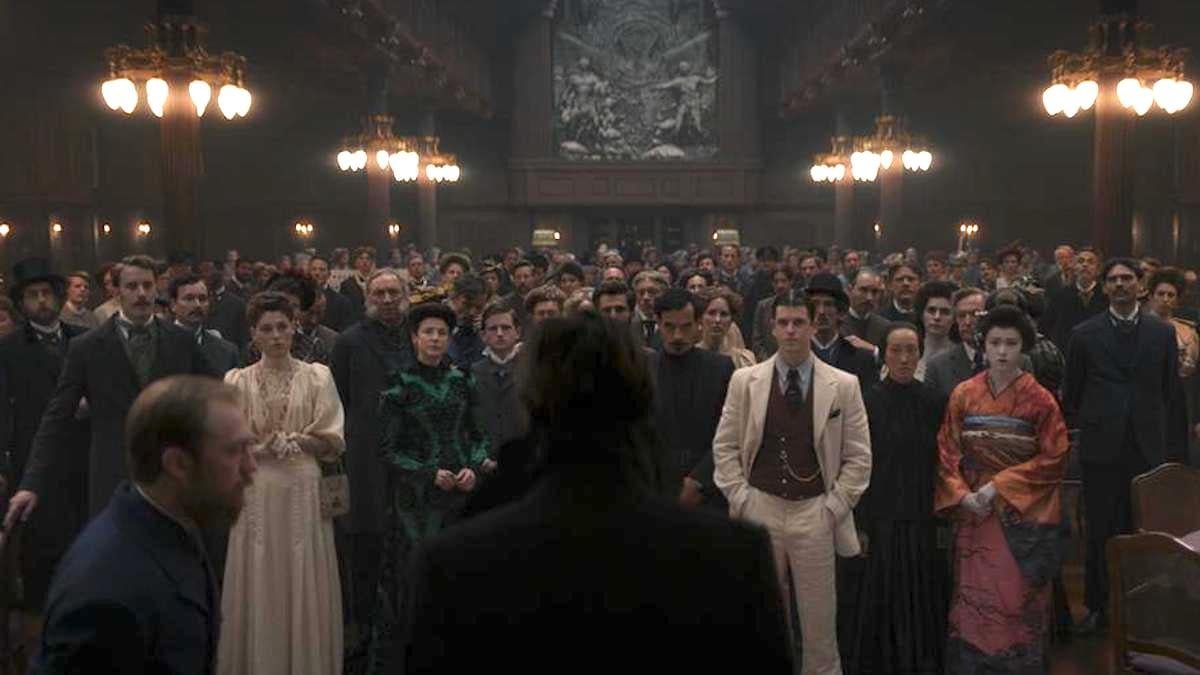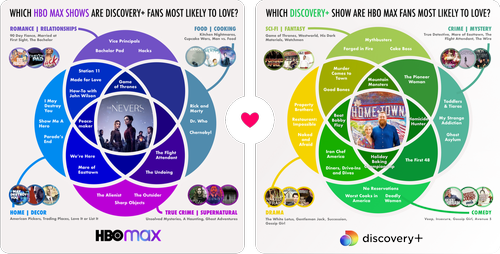Introducing the Insights Renewability Scale
Is your favorite show getting canceled, or is it getting the green light? Our Renewability Score tells you how deserving of renewal any given TV show is.
The television industry is not getting more predictable any time soon. After a boom period when streamers were happy to spend millions building their original content libraries, budgets are finally beginning to shrink, subscription prices are rising, and viewers are making tough choices about which services they’re willing to budget for. More and more shows that might have been safe a few years ago are “on the bubble,” waiting to find out if they’ll be renewed, canceled, or in some cases, deleted from streaming platforms altogether.
On-the-bubble shows are by definition in a precarious spot, but that doesn’t mean they’re powerless. Producers, creators, cast members, and even fans can try to influence the decisions of network execs by demonstrating that their show has a strong, growing fan base and therefore deserves another season. The trouble is that although rave reviews are nice, it’s hard to get data that proves there’s a large enough audience to make renewal worth the studio’s money if you’re not an executive yourself — unless, of course, you have Ranker Insights.
As the place where millions of people go to vote on just about everything, including their favorite TV shows, Ranker has a unique view into which series are grabbing people’s attention and for how long. We’ve developed a system called the Renewability Scale (RS) that is designed to gauge the amount of momentum a show has picked up (or failed to pick up) in the weeks and months following its release, and therefore, how worthy it is of being picked up for another season.
HOW IT WORKS
The RS considers two factors in determining how renewable a given show is: the total volume of votes cast for or against the show (in this case, all votes are good votes) across all lists on Ranker, and the growth of those votes over time.
The latter metric is especially important. Shows that continue to build buzz well after the initial marketing blitz surrounding their premieres often get higher RS scores than shows that earn a large volume of votes in their first week on the air, but are less talked about as their first season runs its course. Our feeling in designing this system was that today’s crowded TV landscape has plenty of buzzy TV shows that are hot for one month, but relatively few shows that can rise above what’s trending and stay at the top of people’s crowded watchlists for months at a time.
RS scores can range anywhere from 100 to negative 100. The higher a show’s RS score, the more advisable it is for the network to renew it; the lower the score, the more likely it is that the show should be canceled.
HOW RENEWABLE IS THE LAST OF US?
The Last of Us has amassed hundreds of votes across various TV lists on Ranker in the months since its premiere in January 2023. Its total vote count is considerably larger than what most new shows are able to garner, a great sign for those hoping it will get a second season. The number of votes the show received in February was double what it got the previous month, due at least in part to the fact that it premiered midway through January. Its projected totals for March, however, indicate that vote totals will sink a bit compared to the previous month, although a highly publicized finale on the 16th could mean the show exceeds those projections.
Using our formula, the show’s RS score is 60. That’s a very positive score, one that suggests The Last of Us really is as deserving of a Season 2 pickup as the hype around the show would suggest. Its performance was somewhat hampered by waning interest among our voters in March, but this kind of drop-off is typical for any show, regardless of how popular it is.
HOW RENEWABLE WAS 1899?
When Netflix canceled fantasy/mystery 1899 in January 2023, just two months after it premiered, the decision was met with confusion and frustration by fans of the show. Some questioned why a promising show, produced by the German creators of the popular Netflix show Dark, was axed before it had a chance to really tell its story. But according to Ranker’s system, the controversial decision was well-founded.
1899 demonstrated promising growth in votes in the month following its release, but the overall volume was never very high — the show barely cleared 50 votes in its best month. That, combined with the fact that votes dropped precipitously the month after its cancelation was announced, contributed to the show’s -26 RS score. The show isn’t a total stinker, but it’s fairly conclusive that it hasn’t managed to pick up much momentum among our readers. Of course, the dip in votes could be attributed to waning interest after the decision to end the show was announced. Even so, anemic vote totals throughout 1899’s run indicate that Netflix was onto something.
HOW RENEWABLE IS BIG SKY?
Among the raft of shows on the bubble in 2023 is Big Sky, a mystery thriller from the creator of Big Little Lies. Now in its third season, the show is awaiting judgment from its home network of ABC. What does the Ranker data tell us about reception of its third season?
Voting totals for Big Sky have never been high since the show launched back in 2020. The good news for the show is that, over time, voter activity surrounding Big Sky has remained fairly stable rather than tapering off. After the premiere of the most recent season in September of 2022, votes ticked upward in the following month, then dropped off in the month after that — a typical pattern that can support a positive RS score, provided the drop-off isn’t too steep. That’s exactly what happened in Big Sky’s case: Vote growth was high enough to result in an RS score of 14. That’s not a particularly high score, but if ABC asked us, it’s high enough to justify a fourth season.
The Renewability Scale doesn’t just apply to new shows — we can also look at vote totals for the months after the release of an ongoing series’ third or fourth season to see how much gas is left in the tank. And the results might be useful not just to proponents of a show looking to secure its renewal, but also to critics and reporters hoping to help their readers understand the prospects for a given on-the-bubble show.
Regardless of how it’s used, the Renewability Scale is just one of the nearly infinite possible uses of Ranker’s unique first-party voting data, from building an app that delivers TV recommendations curated to your specific tastes to predicting the winner of prestigious film awards. To learn more about how our Ranker Insights can be customized to serve your business needs, visit insights.ranker.com, or email us at insights@ranker.com.









